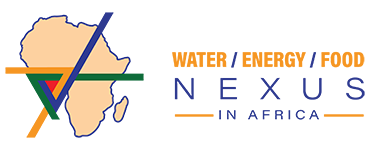The Water-Energy-Food Nexus Toolkit (WEF-Tools) is developed to support sustainable socio-economic development in the Southern African Development Community (SADC) and Middle East and North Africa (MENA) regions. The project is focused on five case studies and follows an approach that proceeds from conceptual mapping of the nexus system to the development of quantitative tools such as System Dynamics Models (SDMs) and identification of indicators for the assessment of different scenarios, management strategies, ultimately, providing decision-makers with feasible development pathway options. Through these case studies, WEF-Tools will provide a structured knowledge base, simulation tools, dashboards, and a composite nexus index which will be co-developed, tested, validated, and refined through interactive collaboration with stakeholders. The toolkit is intended to support the development of short-, medium- and long- term strategies for sustainable natural resource management and to inform policy and practice at river basin as well as local, national, and regional levels. The project`s outcomes will provide a means for government ministries, NGOs and development agencies to assess progress towards relevant Sustainable Development Goals (SDGs), in particular, SDGs 2, 6, and 7. Thus, WEF-Tools is aimed at supporting policymakers across these sectors to make decisions that support the environment, economy, and WEF security developments. The project is led by IHE Delft and supported by the IHE Delft Partnership Programme for Water and Development (DUPC2). A special session aims at introducing the WEF-Tools project, its approach, case studies, progress to date, and to solicit input from interested parties. This session on introducing WEF-Tools will be held at the WaterNet Symposium from October 28th to October 30th. t will provide an opportunity for external stakeholders to meet and contribute to the project activities and for discussion around WEF-related issues in the SADC region. It is also possible to join the WEF conversation following this link.
